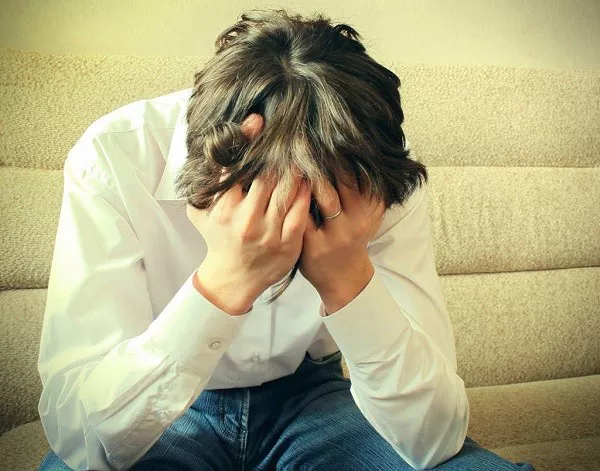Relationships are an essential part of human life. They can bring joy, support, and companionship. However, not all relationships are healthy. Understanding what constitutes an unhealthy relationship is crucial for maintaining mental and emotional well-being. This article will explore the characteristics of unhealthy relationships, the signs to look for, the impact on individuals, and how to seek help.
Understanding Relationships
What is a Relationship?
A relationship is a connection between two or more people. It can be romantic, platonic, familial, or professional. Healthy relationships are based on mutual respect, trust, and support. In contrast, unhealthy relationships can lead to emotional distress and harm.
The Importance of Healthy Relationships
Healthy relationships contribute positively to our lives. They provide emotional support, foster personal growth, and enhance our overall well-being. In healthy relationships, individuals feel valued and safe. They can communicate openly and resolve conflicts respectfully.
Characteristics of Unhealthy Relationships
Unhealthy relationships often exhibit several negative characteristics. Here are some key signs to identify an unhealthy relationship:
1. Lack of Communication
Effective communication is vital for any relationship. In unhealthy relationships, communication is often poor or nonexistent. Partners may avoid discussing their feelings, leading to misunderstandings and resentment.
Example: One partner may feel neglected but does not express their feelings. Instead, they bottle up their emotions, which can lead to explosive arguments later.
2. Control and Manipulation
In unhealthy relationships, one partner may try to control the other. This can manifest in various ways, such as dictating what the other person can wear, who they can see, or how they should spend their time.
Example: A partner may insist that their significant other quit their job or stop seeing friends, isolating them from support networks.
3. Lack of Trust
Trust is a cornerstone of healthy relationships. In unhealthy relationships, trust is often absent. Partners may constantly question each other’s motives or actions, leading to a toxic environment.
Example: One partner may frequently check the other’s phone or social media accounts, suspecting infidelity without any evidence.
4. Disrespect
Respect is essential in any relationship. In unhealthy relationships, one or both partners may show disrespect through insults, belittling comments, or dismissive behavior.
Example: A partner may make fun of the other’s interests or achievements, undermining their self-esteem.
5. Emotional Abuse
Emotional abuse is a significant indicator of an unhealthy relationship. This form of abuse can be subtle and insidious, making it difficult to recognize. It includes behaviors such as gaslighting, constant criticism, and humiliation.
Example: A partner may make the other doubt their perceptions or feelings, leading them to feel confused and insecure.
6. Physical Abuse
Physical abuse is a clear sign of an unhealthy relationship. It includes any form of violence or threat of violence. Physical abuse can be overt, such as hitting or slapping, or more subtle, such as throwing objects or blocking exits.
Example: A partner may grab the other’s arm forcefully during an argument, instilling fear and intimidation.
7. Codependency
In unhealthy relationships, one partner may become overly reliant on the other for emotional support or validation. This codependency can lead to an imbalance in the relationship, where one person feels responsible for the other’s happiness.
Example: One partner may sacrifice their own needs and desires to please the other, leading to resentment and burnout.
8. Lack of Support
Healthy relationships involve mutual support and encouragement. In unhealthy relationships, one partner may not support the other’s goals or aspirations. This lack of support can lead to feelings of isolation and frustration.
Example: A partner may dismiss the other’s dreams or ambitions, telling them they are unrealistic or unworthy.
9. Frequent Conflict
While conflict is a natural part of any relationship, unhealthy relationships often involve constant fighting or unresolved issues. Partners may argue about trivial matters or avoid addressing significant problems altogether.
Example: A couple may find themselves in a cycle of arguing about the same issues without reaching a resolution.
10. Feeling Drained
In unhealthy relationships, individuals often feel emotionally drained or exhausted. Instead of feeling uplifted and supported, they may feel stressed and anxious.
Example: A partner may feel relief when they are away from the other person, indicating that the relationship is more harmful than beneficial.
The Impact of Unhealthy Relationships
Unhealthy relationships can have profound effects on individuals. The impact can be emotional, psychological, and physical. Here are some common effects:
Low Self-Esteem
Unhealthy relationships often lead to diminished self-esteem. Constant criticism, manipulation, and disrespect can make individuals doubt their worth and abilities.
Anxiety and Depression
Living in an unhealthy relationship can lead to increased anxiety and depression. The constant stress and emotional turmoil can take a toll on mental health.
Isolation
Unhealthy relationships can lead to social isolation. One partner may isolate the other from friends and family, leading to feelings of loneliness and despair.
Physical Health Issues
The stress of an unhealthy relationship can manifest in physical health problems. Individuals may experience headaches, gastrointestinal issues, or chronic pain due to the emotional strain.
Difficulty in Future Relationships
Experiencing an unhealthy relationship can impact future relationships. Individuals may struggle to trust others or may replicate unhealthy patterns in new relationships.
Recognizing the Signs of an Unhealthy Relationship
Recognizing the signs of an unhealthy relationship is the first step toward making positive changes. Here are some strategies to help identify these signs:
1. Reflect on Your Feelings
Take time to reflect on your feelings in the relationship. Do you feel happy, safe, and respected? Or do you often feel anxious, afraid, or unworthy? Your feelings can provide valuable insight into the health of your relationship.
2. Observe Communication Patterns
Pay attention to how you and your partner communicate. Are conversations open and respectful? Or do they often lead to arguments and hurtful comments? Communication patterns can reveal much about the relationship.
3. Evaluate Support and Trust
Consider whether you feel supported and trusted in the relationship. Do you feel comfortable sharing your thoughts and feelings? Or do you fear judgment and criticism? A lack of support and trust can indicate an unhealthy dynamic.
4. Seek Feedback from Trusted Friends
Sometimes, it can be helpful to seek feedback from trusted friends or family members. They may notice patterns or behaviors that you might overlook. Their perspective can provide valuable insight.
5. Keep a Journal
Keeping a journal can help you track your feelings and experiences in the relationship. Writing down your thoughts can provide clarity and help you identify patterns of behavior.
Seeking Help
If you recognize that you are in an unhealthy relationship, seeking help is crucial. Here are some steps to consider:
Talk to Someone You Trust
Reach out to a trusted friend or family member to share your feelings and experiences. Talking to someone can provide emotional support and help you gain perspective.
Consider Professional Help
Therapy can be beneficial for individuals in unhealthy relationships. A therapist can help you explore your feelings, develop coping strategies, and work toward healthier relationships in the future.
Set Boundaries
If you decide to stay in the relationship, setting boundaries is essential. Communicate your needs and limits clearly. Healthy boundaries can help protect your well-being.
Create a Safety Plan
If you are in a physically abusive relationship, creating a safety plan is crucial. This plan may include finding a safe place to stay, having important documents ready, and knowing who to contact for help.
Consider Ending the Relationship
In some cases, the healthiest option may be to end the relationship. If the relationship is causing significant harm and distress, prioritizing your well-being is essential.
Moving Forward
Leaving an unhealthy relationship can be challenging, but it is often necessary for personal growth and healing. Here are some tips for moving forward:
Focus on Self-Care
Prioritize self-care during the healing process. Engage in activities that bring you joy and relaxation. This may include exercise, hobbies, or spending time with supportive friends.
Reflect on Lessons Learned
Take time to reflect on the relationship and what you have learned. Understanding your experiences can help you avoid similar patterns in the future.
Seek Support
Continue seeking support from friends, family, or a therapist. Surrounding yourself with positive influences can aid in your healing journey.
Take Your Time
Healing from an unhealthy relationship takes time. Be patient with yourself as you navigate your emotions and experiences.
Open Yourself to New Relationships
When you feel ready, consider opening yourself to new relationships. Take the lessons you have learned and apply them to future connections. Look for relationships that are built on respect, trust, and support.
Conclusion
Understanding what constitutes an unhealthy relationship is essential for maintaining emotional and mental well-being. Unhealthy relationships can manifest in various ways, including poor communication, control, lack of trust, and abuse. The impact of such relationships can be profound, leading to low self-esteem, anxiety, and isolation.
Recognizing the signs of an unhealthy relationship is the first step toward making positive changes. Seeking help, whether through trusted friends, family, or professionals, is crucial for healing. Remember that you deserve to be in a relationship that is healthy and fulfilling.
By prioritizing your well-being and learning from your experiences, you can move forward and create healthier, more supportive relationships in the future. Relationships should enhance your life, not diminish it. Take the necessary steps to ensure that your connections with others are positive and enriching.
Related topics:





















